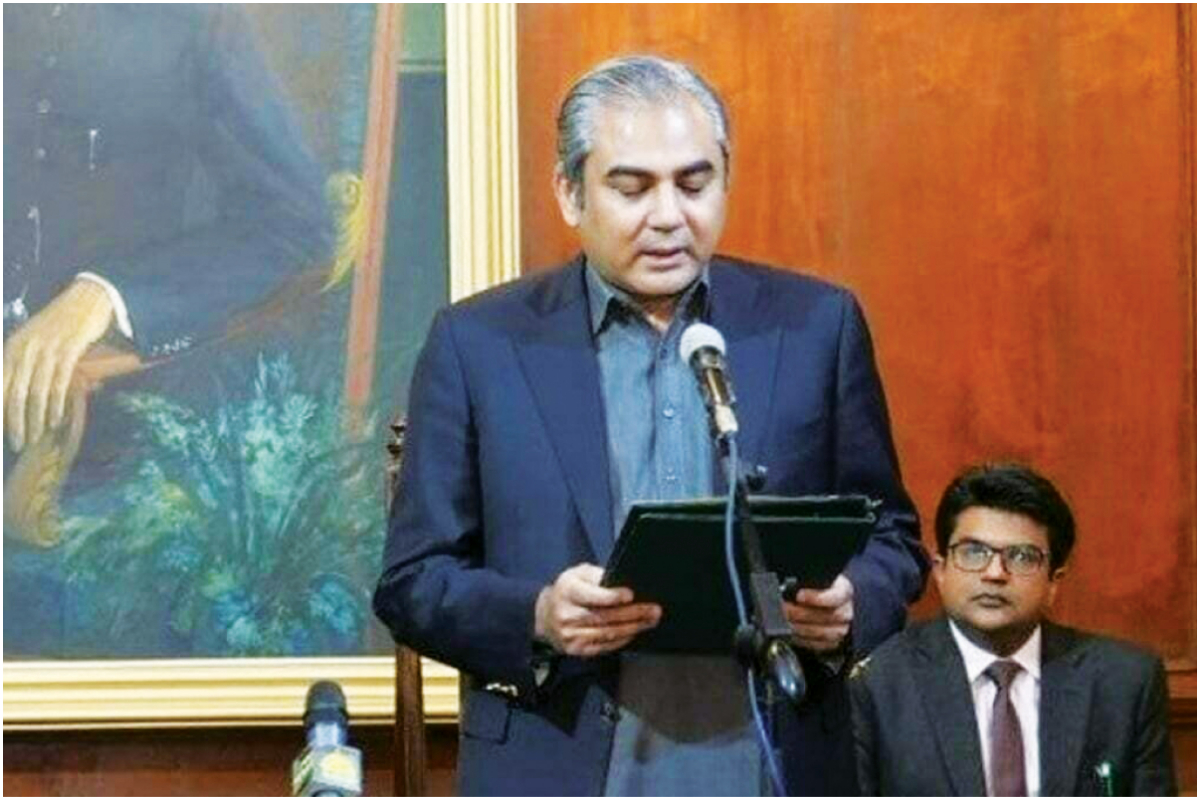
Tales of caretaker-led appointments
Shake-up in the Punjab bureaucracy after the caretaker set-up
Lahore: The first orders issued by interim chief minister Syed Mohsin Raza Naqvi after taking oath in the dead of night on January 26, were to transfer the Inspector General of Police (IGP) and chief secretary and replace them with his men, Dr. Usman Anwar and Zahid Zaman Akhtar.
Despite the fact that these were not unexpected postings, a large-scale shake-up in the Punjab bureaucracy ensued.
Every day since the caretaker administration took over, there has been a shake-up, with the secretaries of 13 important departments being replaced with new ones, while the directors of development authorities, commissioners, and police officers have been dumped as officers on special duty (OSDs). In their place, bureaucrats with less powerful portfolios or appointed as special secretaries in the same department have taken over these 13 provincial departments.
Many of the secretaries who were told to report to the Services and General Administration Department of Punjab (S&GAD), according to sources in the chief secretary’s office, were blue-eyed officers of the former chief minister Chaudhry Parvez Elahi.
Chief Secretary Zahid Zaman Akhtar made a significant decision shortly after taking office. He directed the appointment of interim Anti-Corruption Establishment (ACE) vigilance director Anwar Shah, deputy director Rasheed Nemat, and ACE General Nadeem Sarwar as OSDs.
According to an officer who was recently made an SDO, the coalition administration, specifically Federal Interior Minister Rana Sanaullah, had demanded that these ACE officers be demoted for their proactive role in the corruption cases involving PML-N leaders.
In addition to the overhaul, a number of officers will be placed on the ‘no-fly list,’ according to one official, because ”the Federal Investigation Agency is going after the former principal secretary to the chief minister Muhammad Khan Bhatti and others.”
In this regard, Muhammad Khan Bhatti has petitioned the Lahore High Court (LHC) for redress.
Those appointed as OSDs by the PTI administration received coveted appointments from the caretaker setup, while all commissioners appointed by the same administration have been instructed to report to the S&GAD and have been appointed as OSDs.
These events are being seen with a hint of retaliation by the PTI.
Speaking to a television host, PTI Senior Vice Chairman Shah Mehmood Qureshi said, ”honest officials in Punjab are being punished for their denial of conducting unlawful actions against the leaders and activists of the PTI and PML-Q by the imposed caretaker set up in Punjab.” Since a bureaucrat regarded as the most unwelcome person in Multan has been appointed as the city’s commissioner, his displeasure with the situation is palpable.
When the Mohsin Naqvi administration changed commissioners, one of the names on the new positions had previously served in that capacity under the PTI administration. The Multan division commissioner position for Muhammad Abdul Aamir Khattak, PAS/BPS-19, received the most attention. The individual in question was appointed as an OSD by the Parvez Elahi cabinet in October, ostensibly on the orders of Shah Mehmood Qureshi.
Amir Khattak’s comeback story is fascinating. He was appointed Multan commissioner during the PTI government, but he was removed after Shah Mehmood Qureshi discovered his suspected role in influencing the NA-193 by-election. Mr. Qureshi stated that after his daughter Mehr Bano Qureshi was defeated by Pakistan People’s Party (PPP) candidate Musa Gilani, Amir Khattak would no longer be the Multan commissioner. Within hours of making his statement, Khattak was transferred and made an OSD.
Multan residents believe that all appointments are made on the recommendation of the Gilani House, which the Gilani House denies.
The transfer and posting have strained relations between the caretaker setup and the PTI.
Zulfi Bukhari, a former adviser to Prime Minister Imran Khan, tweeted about the level of resentment in the PTI camp, saying, ”What would you do, Syed Mohsin Raza Naqvi, after 90 days? There will be no refuge for you.”
A caretaker government’s primary function is to hold elections, not to make policy decisions. The caretaker government, however, has reorganised virtually every level of the bureaucracy. The caretaker Punjab administration reshuffled nearly the entire administrative secretaries structure across the province. The caretaker government also made new appointments in the police department, filling several critical police positions across the province. Almost the entire command structure of the force has changed in Lahore, the political nerve centre.
Sumair Ahmad Syed, an assistant to Prime Minister Shehbaz Sharif, has also been appointed as the caretaker chief minister’s principal secretary. He is employed as a BS-19 officer and was previously the prime minister’s personal staff officer. This is the position in charge of the entire provincial bureaucracy. His appointment is viewed as a federal government attempt to micromanage the country’s largest province. From 2013 to 2018, Sumair Ahmed Syed was also the chief minister’s personal staff officer.
The transfer and posting must continue until the Election Commission of Pakistan (ECP) announces the election schedule. Since the commission has prohibited moving public employees within, from, or to the province, all transfers and postings in Punjab are done so with the ECP’s approval.
However, the problem with Pakistani politics and, by extension, governments is that every institution is heavily politicised.
Catch all the Urban Insight News, Breaking News Event and Latest News Updates on The BOL News
Download The BOL News App to get the Daily News Update & Live News.












 Read the complete story text.
Read the complete story text. Listen to audio of the story.
Listen to audio of the story.